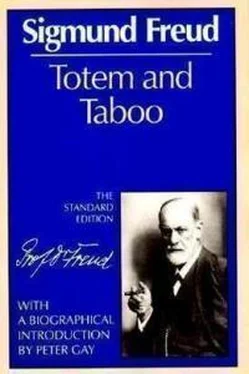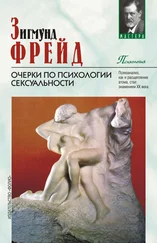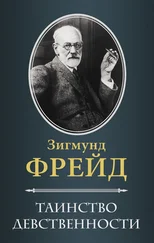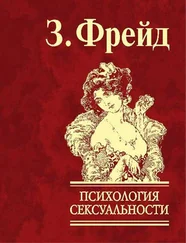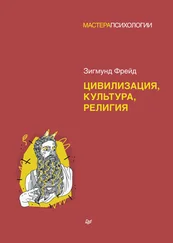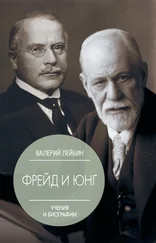Зигмунд Фрейд - Totem and Taboo
Здесь есть возможность читать онлайн «Зигмунд Фрейд - Totem and Taboo» весь текст электронной книги совершенно бесплатно (целиком полную версию без сокращений). В некоторых случаях можно слушать аудио, скачать через торрент в формате fb2 и присутствует краткое содержание. Год выпуска: 2014, Издательство: epubBooks Classics, Жанр: Психология, на английском языке. Описание произведения, (предисловие) а так же отзывы посетителей доступны на портале библиотеки ЛибКат.
- Название:Totem and Taboo
- Автор:
- Издательство:epubBooks Classics
- Жанр:
- Год:2014
- ISBN:нет данных
- Рейтинг книги:3 / 5. Голосов: 1
-
Избранное:Добавить в избранное
- Отзывы:
-
Ваша оценка:
- 60
- 1
- 2
- 3
- 4
- 5
Totem and Taboo: краткое содержание, описание и аннотация
Предлагаем к чтению аннотацию, описание, краткое содержание или предисловие (зависит от того, что написал сам автор книги «Totem and Taboo»). Если вы не нашли необходимую информацию о книге — напишите в комментариях, мы постараемся отыскать её.
Totem and Taboo — читать онлайн бесплатно полную книгу (весь текст) целиком
Ниже представлен текст книги, разбитый по страницам. Система сохранения места последней прочитанной страницы, позволяет с удобством читать онлайн бесплатно книгу «Totem and Taboo», без необходимости каждый раз заново искать на чём Вы остановились. Поставьте закладку, и сможете в любой момент перейти на страницу, на которой закончили чтение.
Интервал:
Закладка:
One of the most glaring examples of thus fettering and paralysing a holy ruler through taboo ceremonial seems to have been reached in the life routine of the Mikado of Japan, as it existed in earlier centuries. A description which is now over two hundred years old [60] Kaempfer, History of Japan , see in Frazer, l.c. , p. 3.
relates: “He thinks that it would be very prejudicial to his dignity and holiness to touch the ground with his feet; for this reason when he intends to go anywhere, he must be carried thither on men’s shoulders. Much less will they suffer that he should expose his sacred person to the open air, and the sun is not thought worthy to shine on his head. There is such a holiness ascribed to all the parts of his body that he dares to cut off neither his hair, nor his beard, nor his nails. However, lest he should grow too dirty, they may clean him in the night when he is asleep; because they say that what is taken from his body at that time, hath been stolen from him, and that such a theft does not prejudice his holiness or dignity. In ancient times, he was obliged to sit on the throne for some hours every morning, with the imperial crown on his head; but to sit altogether like a statue without stirring either hands or feet, head or eyes, nor indeed any part of his body, because by this means it was thought that he could preserve peace and tranquillity in his empire; for if unfortunately, he turned himself on one side or other, or if he looked a good while towards any part of his dominion, it was apprehended that war, famine, fire or some other great misfortune was near at hand to desolate the country.”
Some of the taboos to which barbarian kings are subject vividly recall the restrictions placed on murderers. On Shark Point at Cape Padron in Lower Guinea (West Africa), a priest–king called Kukulu lives alone in a woods. He is not allowed to touch a woman or to leave his house and cannot even rise out of his chair, in which he must sleep in a sitting position. If he should lie down the wind would cease and shipping would be disturbed. It is his function to keep storms in check, and in general, to see to an even, healthy condition of the atmosphere [61] Bastian, The German Expedition to the Coast of Loango (Jena 1874), cited by Frazer, l.c. , p. 5.
. The more powerful a king of Loango is, says Bastian, the more taboos he must observe. The heir to the throne is also bound to them from childhood on; they accumulate about him while he is growing up, and by the time of his accession he is suffocated by them.
Our interest in the matter does not require us to take up more space to describe more fully the taboos that cling to royal and priestly dignity. We merely add that restrictions as to freedom of movement and diet play the main rôle among them. But two examples of taboo ceremonial taken from civilized nations, and therefore from much higher stages of culture, will indicate to what an extent association with these privileged persons tends to preserve ancient customs.
The Flamen Dialis , the high–priest of Jupiter in Rome, had to observe an extraordinarily large number of taboo rules. He was not allowed to ride, to see a horse or an armed man, to wear a ring that was not broken, to have a knot in his garments, to touch wheat flour or leaven, or even to mention by name a goat, a dog, raw meat, beans and ivy; his hair could only be cut by a free man and with a bronze knife, his hair combings and nail parings had to be buried under a lucky tree; he could not touch the dead, go into the open with bare head, and similar prohibitions. His wife, the Flaminica, also had her own prohibitions: she was not allowed to ascend more than three steps on a certain kind of stairs and on certain holidays she could not comb her hair; the leather for her shoes could not be taken from any animal that had died a natural death but only from one that had been slaughtered or sacrificed; when she heard thunder she was unclean until she had made an expiatory sacrifice [62] Frazer, l.c. , p. 13.
.
The old kings of Ireland were subject to a series of very curious restrictions, the observance of which was expected to bring every blessing to the country while their violation entailed every form of evil. The complete description of these taboos is given in the Book of Rights , of which the oldest manuscript copies bear the dates 1890 and 1418. The prohibitions are very detailed and concern certain activities at specified places and times; in some cities, for instance, the king cannot stay on a certain day of the week, while at some specified hour this or that river may not be crossed, or again there is a plane on which he cannot camp a full nine days, etc. [63] Frazer, l.c. , p. 11.
Among many savage races the severity of the taboo restrictions for the priest–kings has had results of historic importance which are especially interesting from our point of view. The honour of being a priest–king ceased to be desirable; the person in line for the succession often used every means to escape it. Thus in Combodscha, where there is a fire and water king, it is often necessary to use force to compel the successor to accept the honour. On Niue or Savage Island, a coral island in the Pacific Ocean, monarchy actually came to an end because nobody was willing to undertake the responsible and dangerous office. In some parts of West Africa a general council is held after the death of the king to determine upon the successor. The man on whom the choice falls is seized, tied and kept in custody in the fetish house until he has declared himself willing to accept the crown. Sometimes the presumptive successor to the throne finds ways and means to avoid the intended honour; thus it is related of a certain chief that he used to go armed day and night and resist by force every attempt to place him on the throne [64] A. Bastian, The German Expedition on the Coast of Lonago , cited by Frazer, l.c. , p. 18.
. Among the negroes of Sierra Leone the resistance against accepting the kingly honour was so great that most of the tribes were compelled to make strangers their kings.
Frazer makes these conditions responsible for the fact that in the development of history a separation of the original priest–kingship into a spiritual and a secular power finally took place. Kings, crushed by the burden of their holiness, became incapable of exercising their power over real things and had to leave this to inferior but executive persons who were willing to renounce the honours of royal dignity. From these there grew up the secular rulers, while the spiritual over–lordship, which was now of no practical importance, was left to the former taboo kings. It is well known to what extent this hypothesis finds confirmation in the history of old Japan.
A survey of the picture of the relations of primitive peoples to their rulers gives rise to the expectation that our advance from description to psychoanalytic understanding will not be difficult. These relations are of an involved nature and are not free from contradictions. Rulers are granted great privileges which are practically cancelled by taboo prohibitions in regard to other privileges. They are privileged persons, they can do or enjoy what is withheld from the rest through taboo. But in contrast to this freedom they are restricted by other taboos which do not affect the ordinary individual. Here, therefore, is the first contrast, which amounts almost to a contradiction, between an excess of freedom and an excess of restriction as applied to the same persons. They are credited with extraordinary magic powers, and contact with their person or their property is therefore feared, while on the other hand the most beneficial effect is expected from these contacts. This seems to be a second and an especially glaring contradiction; but we have already learned that it is only apparent. The king’s touch, exercised by him with benevolent intention, heals and protects; it is only when a common man touches the king or his royal effects that the contact becomes dangerous, and this is probably because the act may recall aggressive tendencies. Another contradiction which is not so easily solved is expressed in the fact that great power over the processes of nature is ascribed to the ruler and yet the obligation is felt to guard him with especial care against threatening dangers, as if his own power, which can do so much, were incapable of accomplishing this. A further difficulty in the relation arises because there is no confidence that the ruler will use his tremendous power to the advantage of his subjects as well as for his own protection; he is therefore distrusted and surveillance over him is considered to be justified. The taboo etiquette, to which the life of the king is subject, simultaneously serves all these objects of exercising a tutelage over the king, of guarding him against dangers and of guarding his subjects against danger which he brings to them.
Читать дальшеИнтервал:
Закладка:
Похожие книги на «Totem and Taboo»
Представляем Вашему вниманию похожие книги на «Totem and Taboo» списком для выбора. Мы отобрали схожую по названию и смыслу литературу в надежде предоставить читателям больше вариантов отыскать новые, интересные, ещё непрочитанные произведения.
Обсуждение, отзывы о книге «Totem and Taboo» и просто собственные мнения читателей. Оставьте ваши комментарии, напишите, что Вы думаете о произведении, его смысле или главных героях. Укажите что конкретно понравилось, а что нет, и почему Вы так считаете.
